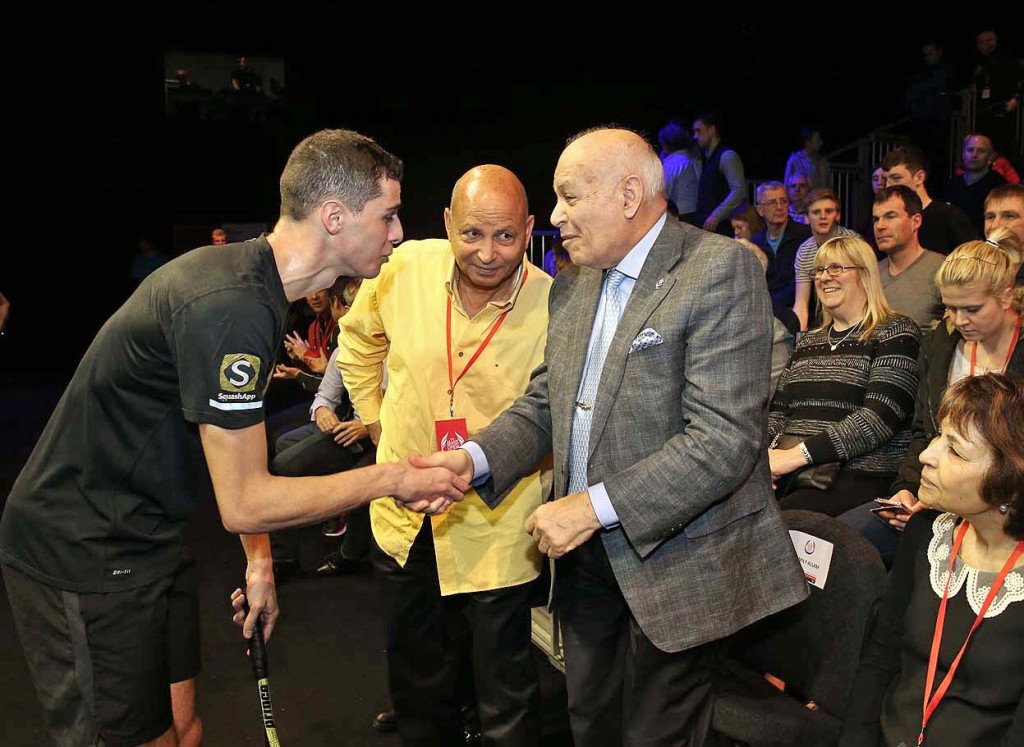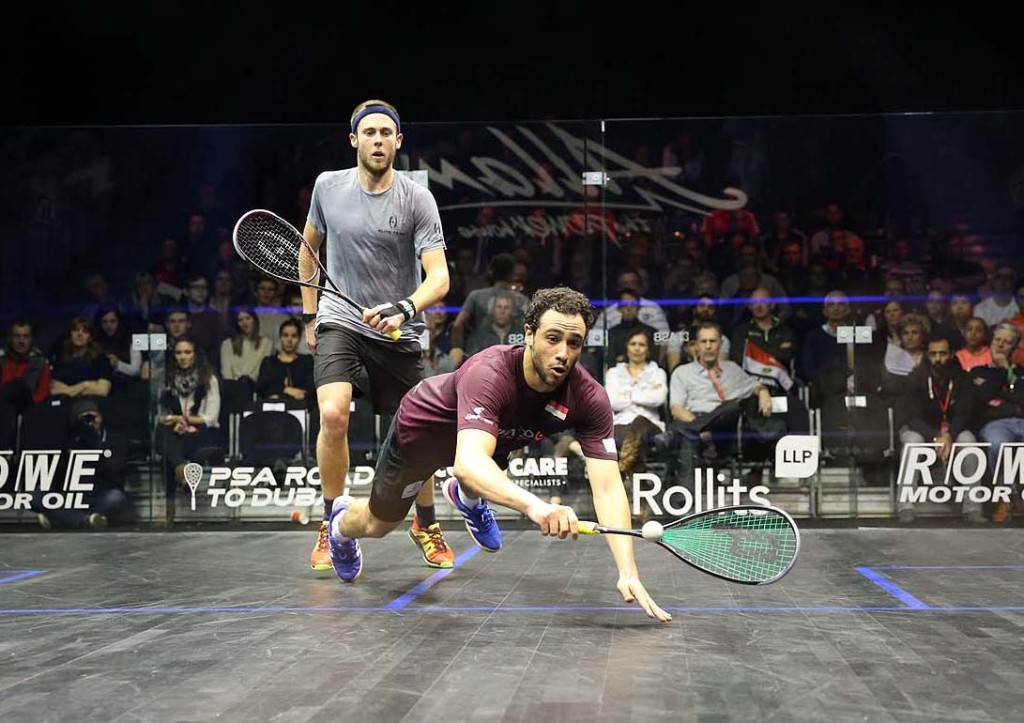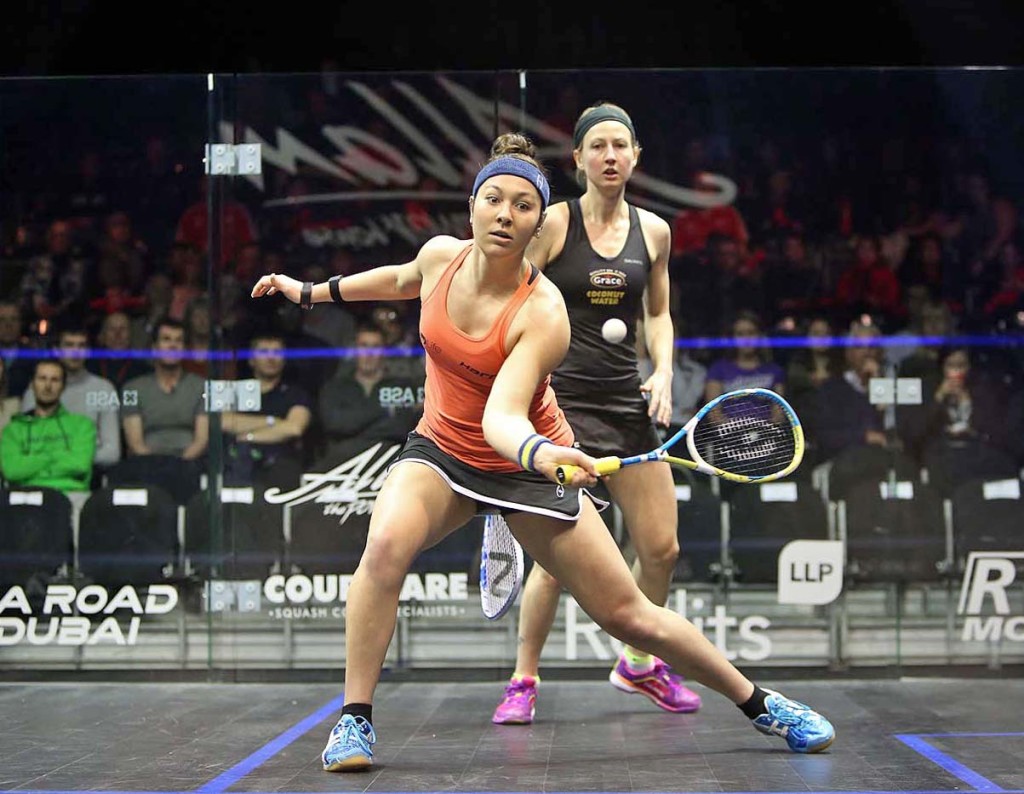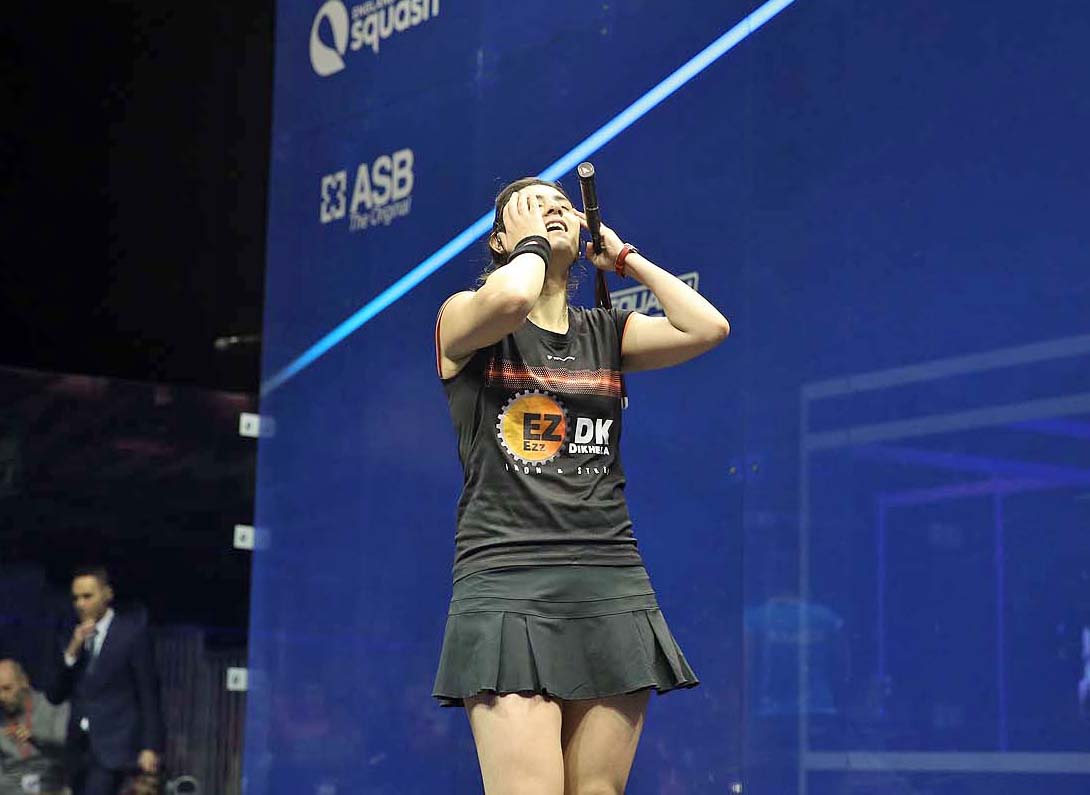
By James Zug
Kingston upon Hull, the East Yorkshire port town, has a delightful old district along the harbor: narrow, cobblestoned streets, ancient pubs, a museum about slavery in the Georgian home of William Wilberforce. On the other side of town, in West Hull, is KC Stadium where Hull FC, the rugby league team, and Hull City, the pro soccer team, play. The stadium, built in 2002, was the first in Great Britain to be built in a park setting, with wide stretches of grass, playgrounds, a skateboard park, even a lone concrete ping-pong table.
Part of the KC Stadium complex is Airco Arena, an unremarkable building with a remarkably varied fixtures list. Throughout the year, Airco hosts expos, professional wrestling bouts, community badminton nights, roller derbies, basketball matches and dart, soccer, netball and team handball tournaments.
It is also the home of the Allam British Open. Four years ago, Assem Allam brought the British Open to Hull. Allam, the owner of an industrial marine company, had grown up in Egypt but left for Hull in 1968 after running seriously afoul of Nasser’s regime (he told me the welts on his back didn’t heal for over two years). In 2013 Allam, now the owner of Hull City, brought the so-called Wimbledon of Squash to KC Stadium. He plopped the court at one end of the pitch. It was an exciting idea but rain and sunshine both affected the experience too much and for the third year now, the British Open has been next door at Airco Arena.

the title sponsor.
It was very much Allam’s tournament. He and his family had a well-appointed lounge just off the left wall of the court and the front-row of seats behind the back wall. After players finished a match they exited the court and instinctively shook Allam’s hand and accepted his congratulations or condolences. They clasped hands then with the man who sat next to Allam for almost every single match, ten-time British Open winner Jahangir Khan. Some even went down the line and shook every family member’s hand. Some sponsors are scarce at their tournaments; Allam rarely missed even a game.
Who would want to, because the 2016 British Open was extraordinary. Upsets abounded. Five seeded women lost in the opening round; it would have been a sixth but Omneya Abdel Kawy saved two match balls and on her own sixth match ball clinched her match against Tesni Evans. Both Laura Massaro and Raneem El Welily went down unexpectedly in the quarters.

winning in overtime.
While Olivia Blatchford powered through the qualies only to lose in the main draw opening round to Laura Massaro, Amanda Sobhy made history by becoming the first American to ever reach the quarters of the British Open. The women’s draw was first started in 1922—it only took ninety-four years to get the Stars & Stripes into the last three days. Sobhy, slightly under the weather, went down in three in the quarters to Nour El Sherbini, despite being up 8-3 in the third.
El Sherbini then ousted Nicol David in a riveting four-game encounter, despite a huge contingent of David’s Amsterdam friends on hand (there are almost daily direct flights from Amsterdam to Hull). And then El Sherbini outlasted Nouran Gohar in the finals, 11-8 in the fifth. El Sherbini made history by becoming the first Egyptian woman to win the title (five Egyptian men have). Gohar, the world junior champion, equally made it clear that she’s destined to someday join her countrywoman on that list of British Open winners. The hard-hitting teenager has tremendous pedigree—her mother was an Egyptian and African champion in table tennis—and is undeniably precocious—less than three months before Hull she was in the final of the British Junior Open at Sheffield on the other side of Yorkshire.

British Open since Natalie Grainger made the semis in 2008.
Two body parts dominated the men’s draw narrative. One was ankles, the other a hamstring. Nick Matthew turned his ankle again during his second-round match with Ali Farag and limped to a five-game loss. Saurav Ghosal turned his for the first time and retired during his second-round match against Marwan Elshorbagy. And Gregory Gaultier came back for his first tournament since ripping his ankle during the J.P. Morgan Tournament of Champions in January. After six-weeks off and then four hours of therapy a day, Gaultier only got back on court three weeks before the British Open.
Like Gaultier, the British Open was the first tournament in months for Ramy Ashour after his hamstring injury. He had come off injured after his quarterfinal match at the World Championships in December in Seattle and hadn’t played since. For a while, it looked like neither player was destined to make their semifinal rendezvous. In the opening round Gaultier was down 1-2 against Cameron Pilley and Ashour was down 0-2 against Cesar Salazar. Gaultier settled down thereafter; Ashour in the next round was down 9-3 in the fifth against Ryan Cuskelly—he saved a match ball and escaped 13-11.
Their semifinal match was a corker, the match of the men’s draw, with a full standing ovation from the crowd of 600. Ashour was sublime in the opening games; Gaultier backed up and fought brilliantly to take the next two. In the fifth Gaultier dashed to a 5-0 lead. It was over. It was not over. Ashour climbed back. 6-2, and then a run of winners and he won 11-7. Hamstring over ankle.





